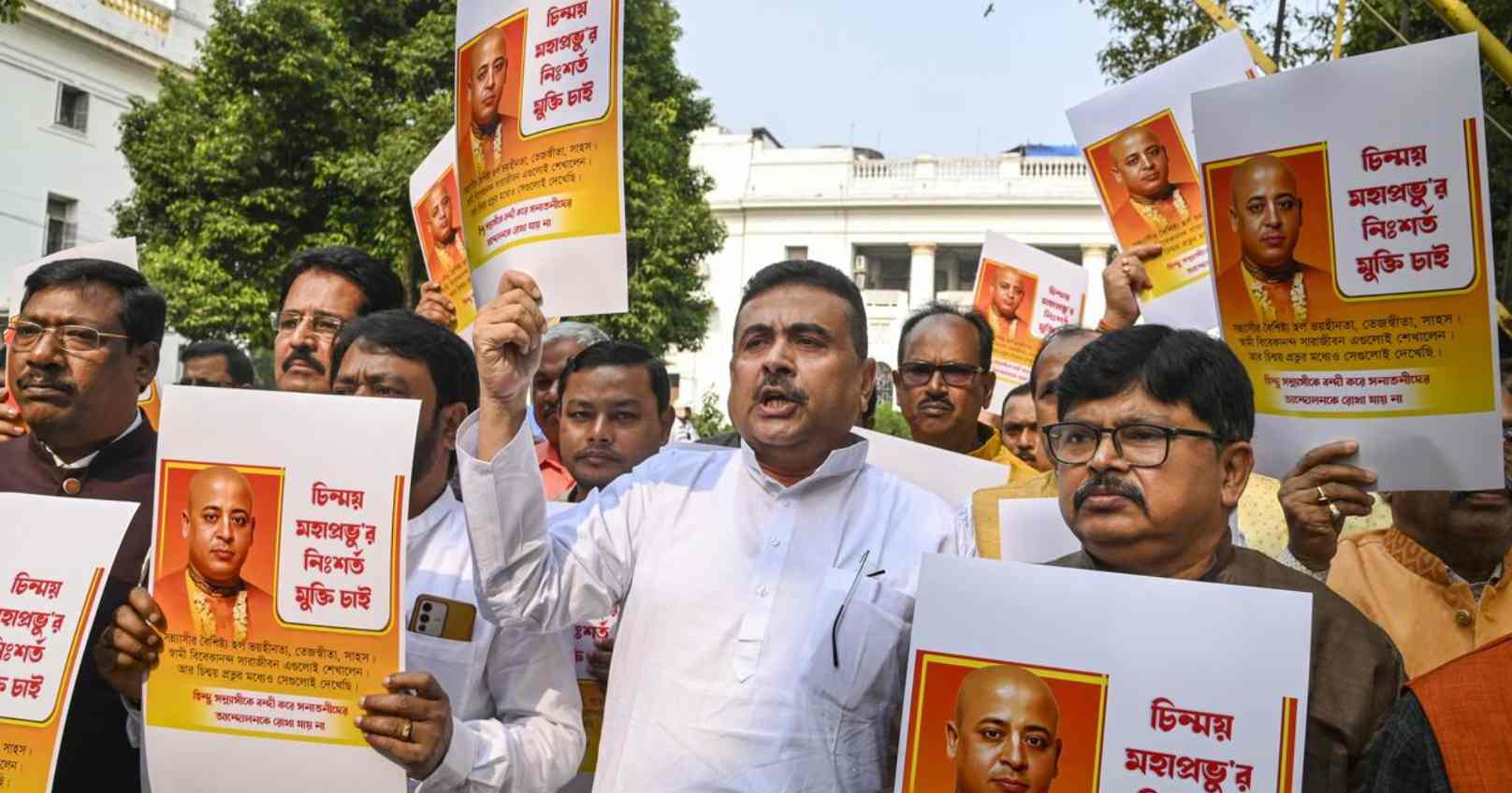Bangladeshi authorities denied entry to 54 members of the Hindu spiritual organisation Iskcon who attempted to cross into India through the Benapole border, despite possessing valid passports and visas, according to reports. The devotees had planned to participate in a religious ceremony in India but were stopped by immigration officials citing a lack of specific government permission.
The Iskcon members, hailing from various districts in Bangladesh, arrived at the border on Saturday night and Sunday morning. After waiting for hours, they were informed that their travel was not authorised. Immigration officials at the Benapole crossing claimed they were acting on instructions from higher authorities.
“We consulted the special branch of police and received instructions not to permit them to cross,” said Imtiaz Ahsanul Quader Bhuiyan, an officer with Benapole Immigration Police. Despite holding all standard travel documents, the devotees were told they required additional government approval for their journey.
One devotee, Saurabh Tapandar Cheli, expressed disappointment, saying, “We came to attend a religious ceremony in India but were stopped by officials citing the absence of government permission.”
Iskcon Facing Crackdown in Bangladesh
The incident comes amid growing actions by Bangladeshi authorities against Iskcon, including the arrests of several prominent figures and the freezing of bank accounts linked to the organisation. These measures followed the arrest of Hindu monk and former Iskcon member Chinmoy Krishna Das on sedition charges. Das, who has been denied bail and remains in custody, became the focal point of violent protests that led to the death of a lawyer.
Two other Hindu priests, Rudraproti Kesab Das and Ranga Nath Syama Sundor Das, were also arrested during the protests. The unrest has led to widespread condemnation and calls for Iskcon to be banned in Bangladesh. However, the Bangladeshi High Court recently refused to outlaw the organisation.
Authorities have frozen the bank accounts of 17 Iskcon affiliates, including those linked to Chinmoy Krishna Das, for a period of 30 days as part of an ongoing investigation.
This crackdown has raised concerns about the treatment of minority religious groups in Bangladesh, with rights activists urging authorities to ensure fair and unbiased actions.







